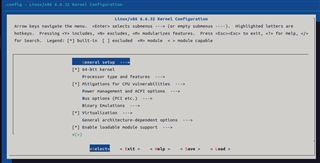Other Parts Discussed in Thread: TDA4VH, SN65DSI86, DLPC3433, TFP410, SN65DSI83, TPD12S015
Tool/software:
Hi team
I use the sdk is TDA4VM_SDK_10.05,
I want to port the configuration of the ds90ub941 from PSDKRA to PSDKLA.
However, I don't know how to do it. I've examined the PSDKLA code and found two files:
psdkla/board - support/ti - linux - kernel - 6.6.32+git - ti/drivers/gpu/drm/omapdrm/dss/dsi.c
and
psdkla/board - support/ti - linux - kernel - 6.6.32+git - ti/drivers/gpu/drm/omapdrm/dss/dispc.c.
Is it sufficient for me to simply write the probe code for the ds90ub941, initialize its registers, and then use the dispc.c and dsi.c files to configure the DSI and timing parameters?
If so, could you tell me how to use the dispc.c and dsi.c files for DSI and timing parameter configuration?
Regards,
FuGuojia






